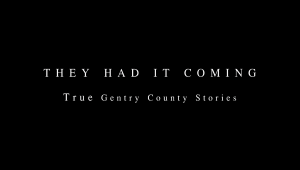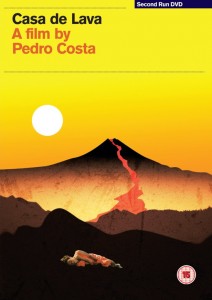From the Chicago Reader (December 3, 1999). — J.R.

El Valley Centro
Rating ** Worth seeing
Directed by James Benning.
El Valley Centro, James Benning’s latest feature, is a fairly minimalist effort consisting of 35 shots, each of them two and a half minutes long, filmed in direct sound with a stationary camera in California’s Central Valley. About halfway through I found myself, to my surprise, thinking about Joseph Cornell’s boxes, those surrealist constructions teeming with fantasy and magic — dreamlike enclosures that make it seem appropriate that Cornell lived most of his life on a street in Queens called Utopia Parkway.
Benning’s films are typically about farmland, deserts, or industrial landscapes. The two features preceding this one are Four Corners, shot around the point where New Mexico, Arizona, Colorado, and Utah meet, and Utopia, shot in desert country starting in Death Valley and heading south across the Mexican border. Benning hails from Wisconsin, and most of his early films are made up of midwestern landscapes. He moved to the west coast several years ago to teach at Cal Arts, and ever since he’s been shooting various kinds of midwesternlike emptiness and decay in the western states. Two years ago he started offering free December screenings of his new films at a private loft in Wicker Park, when he was back for the holidays, and apart from screenings at Cal Arts, these have been the films’ American premieres. Read more

Now that I’ve seen three of the most recent half-dozen features of Jon Jost — Coming to Terms (2013, Butte, Montana), Blue Strait (2014, Port Angeles, Washington), and They Had it Coming: True Gentry County Stories (2015, Stanberry, Missouri), in that order — I find myself, unlike certain others (including Jost himself), preferring the third to the second and the second to the first. The reason why is that the basic theme of Jost’s narrative films for quite some time has been the tragic story of American men, some of them patriarchal, others simply burnt-out cases, losing their all-American souls — a theme that to my mind he already gave near-perfect expression to in his 1977 Last Chants for a Slow Dance (dead end) and which he has been spinning out periodically in diverse variations ever since. But to judge from the developments between these three recent features, this may be a story that Jost may finally be turning away from — for the sake of non-narrative meditations (especially in much of Blue Strait) and the stories of others (as in They Had it Coming), others whom in some cases may not even have discernible souls to lose. And for me, these are positive developments for a prodigious independent artist whose productivity is so difficult to chart that his eight separate blogs and two separate web sites make it even harder to track in its various forms and dispersals. Read more
Written for the Second Run DVD of Pedro Costa’s Casa de Lava, released in the U.K. in 2012, and developed from separate articles in the Chicago Reader, November 15, 2007, and the Portuguese collection cem mil cigarros: OS FILMES DE PEDRO COSTA, edited by Ricardo Matos Cabo, Lisboa: Orfeu Negro, 2009. — J.R.

The cinema of Pedro Costa is populated not so much by characters in the literary sense as by raw, human essences — souls, if you will. This is a trait he shares with other masters of portraiture, including Robert Bresson, Charlie Chaplin, Jacques Demy, Alexander Dovzhenko, Carl Dreyer, Kenji Mizoguchi, Yasujiro Ozu, and Jacques Tourneur. It’s not a religious predilection but rather a humanist, spiritual, and aesthetic tendency. What carries these mysterious souls, and us along with them, isn’t stories — though untold or partially told stories pervade all of Costa’s features. It’s fully realized moments, secular epiphanies.
Born in Lisbon in 1959, Costa grew up, by his own account, without much of a family. Speaking about O sangue, his first feature, he admitted that there was a personal aspect in his concentration on the incomplete family in that film “because I never really had a family. Read more



